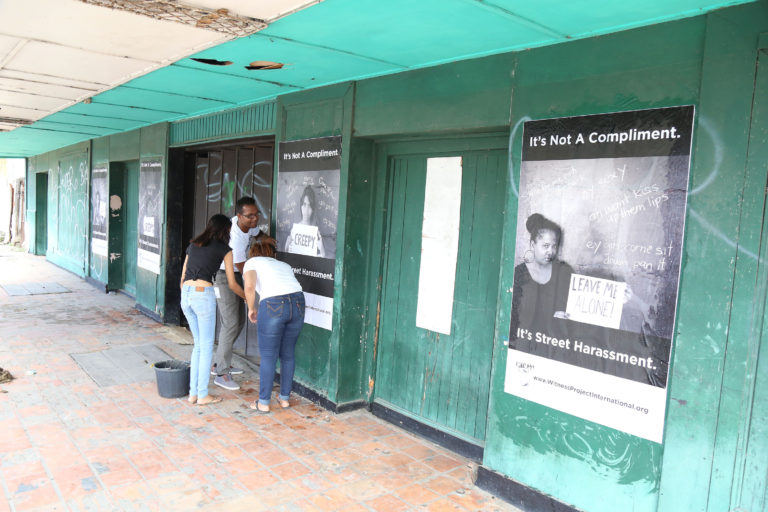Here are the global news stories that caught my attention this month:

Women in Argentina held a topless protest over men’s censorship of their bodies in public spaces.
Calls for bystanders to stop sexual assault in festival crowds in Australia.
TBILISI-Safari Union launched an anti-harassment campaign in Georgia, including legislation and education suggestions.
Members of the Witness Project in Guyana put up posters that say “It’s Not a Compliment. It’s Street Harassment.”
The punk band Sløtface in Norway is tackles street harassment and rape culture in their video Bright Lights.
In Pakistan, sisters Zara and Zoya Khan stood up to street harassers, garnering national attention.
A senator in the Philippines introduced the national-level Senate Bill 1326 to address street harassment.
A national study conducted by UNFPA in Sri Lanka found that 90% of women and girls have faced sexual harassment on public transit.
Women in Trinidad ask men to leave them alone during Carnival.
Thousands of people took to the streets of Manchester (UK) during the annual Reclaim the Night march.
A Sacramento (USA) artist did an audio art project on street harassment called “This is What It Feels Like.”
The Muslim self-empowerment group WISE + two Muslim girls created a self-defense toolkit.

